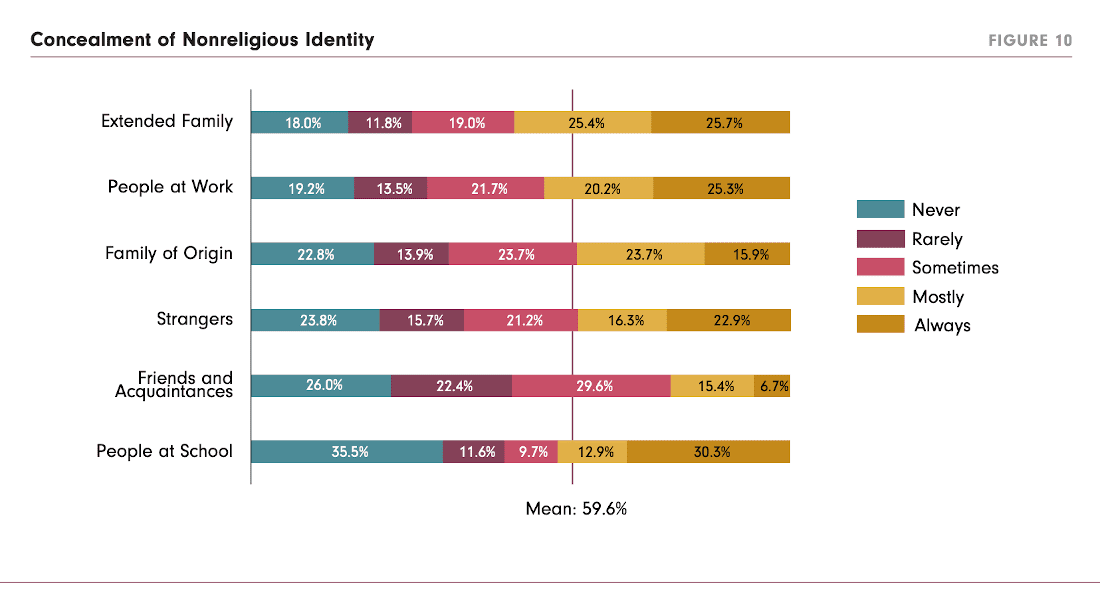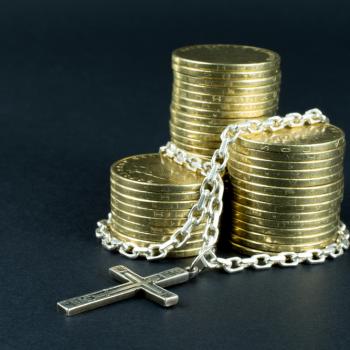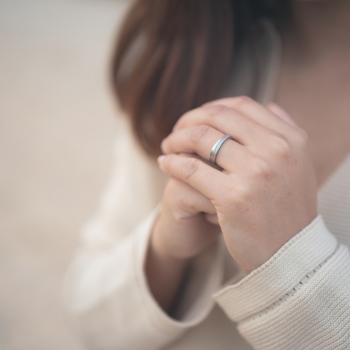Last year, American Atheists released the results of what was arguably the largest survey ever conducted of atheists.
While there are some obvious statistical limits to an online, self-selected survey, the sheer number of participants still tells us a lot about what a large group of self-described atheists thinks about a number of issues.
Today, American Atheists and Black Nonbelievers are releasing a new analysis of that survey, this time focusing on Black atheists specifically.
The biggest takeaway? More than any other racial group, Black atheists are more likely to keep their religious beliefs to themselves. Nearly 40% of Black respondents said they hide their non-religiosity from their immediate family, compared to 31% of respondents from other groups. (Among extended family members, those numbers jump to 51% and 43%, respectively.)

The data indicates that Black nonreligious Americans often hide their nonreligious beliefs, even from their close family members, out of fear of rejection. Further, rejection by family members is likely to result in depression and other negative outcomes, the report found. To help reduce these harms, Black Nonbelievers and American Atheists encourage families and communities to fully accept nonreligious people. They are also calling on the media to avoid the false stereotype that all Black Americans are religious.
“Black organizations and members of the media too often overlook the struggles of Black atheists,” said Debbie Goddard, Vice President for Programs at American Atheists and former director of African Americans for Humanism. “Many of us have experiences that are distinct from those of other Black people but also from those of most atheists. This report helps tell the stories people need to hear about the experiences of those of us who live at the intersection of being both Black and nonreligious.”
…
“The higher level of concealment and anguish among Black participants demonstrates how much stigma there is around nonbelief in our communities. When we do come out, our families often aren’t receptive, and many feel like they are alone,” said Mandisa Thomas, founder and president of Black Nonbelievers. “This is one of the primary reasons Black Nonbelievers was created — to provide a supportive space for Black atheists who face rejection by their families and communities. We also advocate on behalf of Black atheists and religion doubters to rally against the dominant religious narrative, especially pertaining to matters of racial justice.”
None of this should come as a surprise to anyone who’s paid attention to surveys about atheism in America. Its also a reminder of why groups specifically representing Black atheists (or any other demographic group) are so vital: They are better able to address specific concerns that other, broader groups simply can’t.
Even beyond that, it’s why the stereotypical image of atheists as white, male, academic, etc. fails to capture the reality of what it means to escape religion for many people. The arguments presented by someons like Richard Dawkins may appeal to many readers, but logic alone won’t help others deal with their religious families or communities, who play vital roles in their lives. Not believing in God isn’t always about logic; it’s often seen as a betrayal of family and culture. Without addressing those aspects, as groups like Black Nonbelievers do, it’s much harder for some people to express their godlessness.




It’s Moving Day for the Friendly ..."
It’s Moving Day for the Friendly ..."
It’s Moving Day for the Friendly ..."
It’s Moving Day for the Friendly ..."